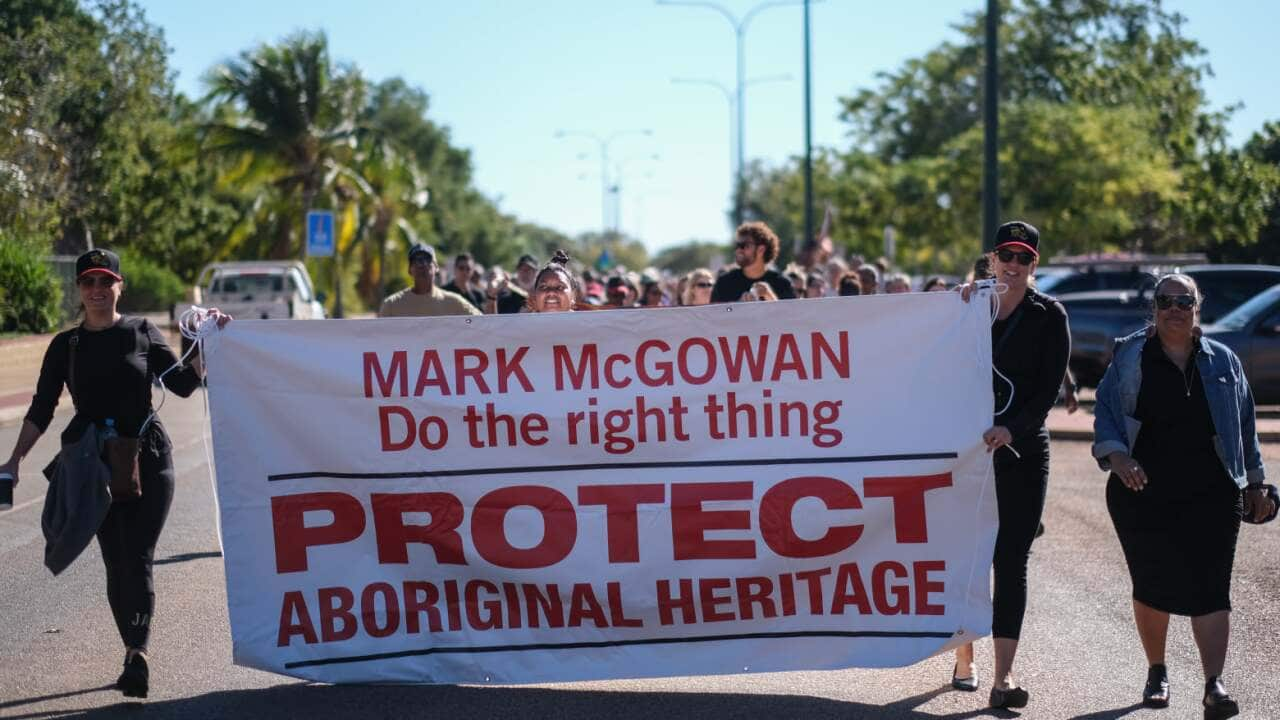Serious concerns over the adequacy of proposed Aboriginal Heritage laws have been heard on a global scale.
Ngalia man and chair of the National Native Title Council, Kado Muir addressed the United Nations Expert Mechanism on the Rights of Indigenous Peoples last week.
Appearing via telecast, he used his time to issue a vigorous review on the proposed Aboriginal Heritage Act 2020 - saying it forbids the use of traditionally-held rights.
"This new bill affords no better protections, it subjects traditional rights to those of the proponents of industry, and it ensures all consent provisions remain with the minister, there's no room for self determination," Mr Muir said.
"The state-approved destruction of many hundreds of sacred sites in Western Australia demonstrates the discriminatory intent of legislation which purports to preserve Aboriginal culture and heritage."
The online meeting was moderated by Cobble Cobble woman and Law Professor, Megan Davis, who was recently announced as chair of the expert mechanism.
This new legislation will replace the outdated Aboriginal Heritage Act 1972 which allowed the 40,000 year old Juukan Caves to be legally blasted by mining company Rio Tinto - which had knowledge of the site\'s cultural significance and went against the wishes of Traditional Owners.
The West Australian government has described the proposed reforms as a "modern approach to protecting Aboriginal cultural heritage" that will "reset" the relationship between land users and Traditional Owners.
A major point of contention has been Section 18 of the Act that greenlit the destruction.
Section 18 currently gives approval to bypass Section 17 - which makes it an offence to excavate, destroy, damage, conceal or in any way alter an Aboriginal site.
Once an approval is granted under section 18, Traditional Owners can no longer appeal it.
Phase 3 of community consultations are currently underway, with the new bill expected to be tabled in Parliament in the second half of the year.

The address was made to the United Nations’ Expert Mechanism on the Rights of Indigenous Peoples.
Bill a "deep concern"
The Aboriginal Heritage Act Review received more than 150 submissions on the issue last year, including on behalf of the PKKP Aboriginal Corporation.
The body represents the Puutu Kunti Kurrama people and the Pinikura people, who are the Traditional Owners of the area where Rio Tinto blasted the two culturally significant rock shelters.
Their feedback on the Bill described how negotiations and agreement with Aboriginal people should be a central, mandatory part of the decision-making process.
"The new Bill still positions Aboriginal cultural heritage, heritage that Traditional Owners have serious responsibilities to protect, as being somehow owned by the State of Western Australia and something that a Minister of the State has the power to make decisions over," the submission read.
"This is not right and of deep concern to us."
Freshly appointed WA Minister for Aboriginal Affairs, Stephen Dawson, has previously declared updating the Heritage Act as a government priority, and that the drafting of the Bill was ongoing.











